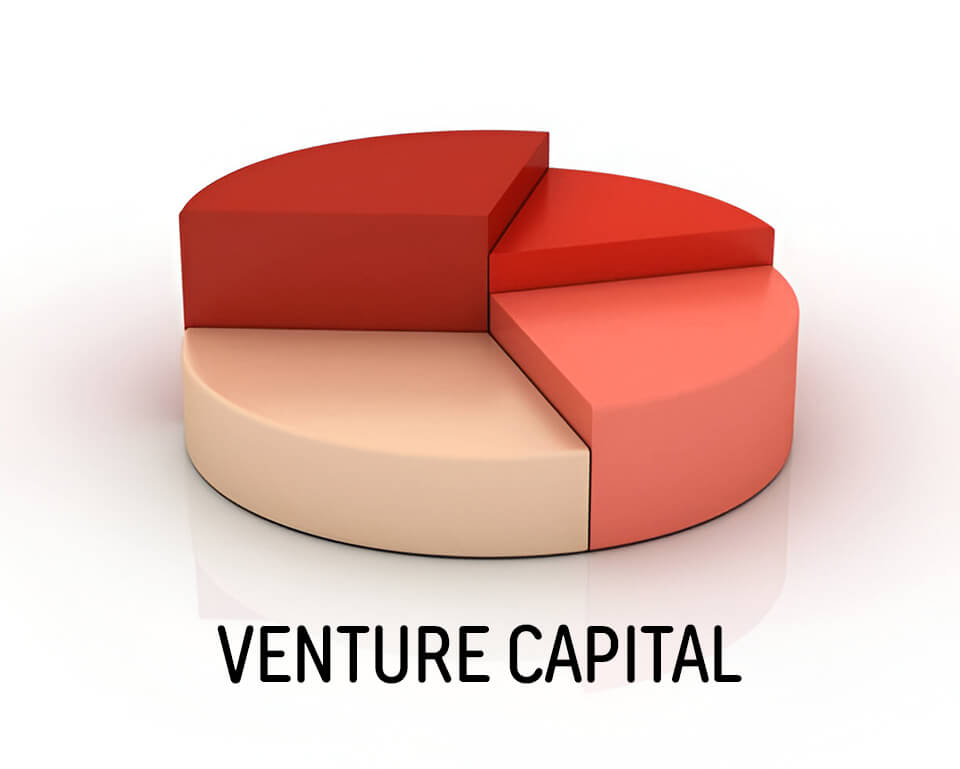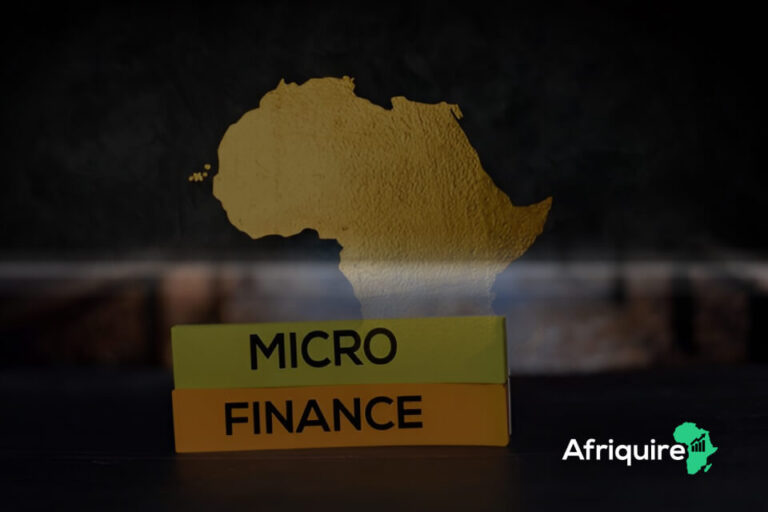- Introduction
- Introduction: Impact of Venture Capital on African Economies
- Contribution to Job Creation and Economic Growth
- Sector-Specific Impacts of Venture Capital
- Long-Term Economic Benefits of Venture Capital Investments
- The Role of Venture Capital in Economic Diversification
- Case Studies of Economic Impact from Successful Investments
- Frequently Asked Questions
- Conclusion
Introduction
Venture capital in Africa has emerged as a powerful driver of economic transformation, supporting innovation, entrepreneurship, and job creation across the continent. A unique form of funding, Venture capital plays a crucial role in the growth of new businesses, particularly in Africa. The funds, sourced from influential investors who have faith in these businesses and their potential for success, profoundly impact African economies. They not only create jobs and foster innovation but also enable local companies to compete on a global scale.
As more and more people invest in African startups, we can anticipate exciting and transformative changes that will enhance lives and bolster the economy. So, how exactly does this unique form of funding bring about positive changes? Let’s explore the impact of venture capital on African economies!
- Overview of Venture Capital in The African Context.
Venture capital is the lifeline for small businesses with big ideas but lack the necessary funds for growth. In Africa, this lifeline has been extended to several startups, enabling them to turn their visions into reality. Over the last decade, close to $20 billion has been invested in African startups, a clear sign of the significant impact venture capital has had on the continent’s entrepreneurial landscape. The majority of this investment has poured in over the last couple of years, inspiring a new wave of entrepreneurs and investors who see Africa as a fertile ground for new businesses.
- The Increasing Role of Venture Capital in Shaping Africa’s Economic Landscape.
Venture Capital is also changing the African economy because, when investing in startups, they tend to solve high-priority issues, such as access to health care and financial inclusion. A really good example would be Paystack from Nigeria, which started with VC funds and became incredibly successful. Eventually, these companies create jobs that improve people’s lives. With all these startups supported by VC in great numbers, the economy is getting stronger in Africa.
- Purpose of Analyzing Its Economic Impact.
Understanding how venture capital affects the African economy is essential to seeing how it supports and contributes to innovation and business growth. First, paying attention to the role of venture capital in African startups tells us the primary impact of VCs on business, which in turn translates to economic growth. VCs invest in new companies, giving them the cash they need to grow. This creates jobs and boosts the economy. If we know how VCs help, we can make better choices for the future and understand how to support them.
With VCs, it’s not just about the money, but creating a better future for Africa. So many companies started with investors who believed in them leading to not only company growth, but economic growth as well.
Introduction: Impact of Venture Capital on African Economies
Venture capital (VC) is a unique form of funding from investors to small businesses with promising ideas. Its growing significance in Africa’s venture capital landscape is not just about financial support but also about its potential to transform the lives of people and communities. Understanding this broader impact is crucial to fully appreciating the role of venture capital in African economies.
- Definition and Scope of Venture Capital.
Venture capital is more than just financial support for young businesses with the potential to grow rapidly. These businesses, often with groundbreaking ideas, lack the resources to bring their products or services to market. VC steps in not only with funds but also with invaluable advice and essential business connections. This comprehensive support system helps startups navigate challenges and make informed decisions. When investors back a business, they are not just seeking profits, but also contributing to the business’s success.
- Historical Perspective on Venture Capital in Africa.
In the past, venture capital was not common in Africa.
Unlike more popular business locations like Silicon Valley in the United States, where startups get plenty of funding, African businesses struggled to find investors. But this is changing! In the early 2000s, more investors began noticing the opportunities in Africa. Over time, some African businesses got funding and became successful. This proves that venture capital can help African startups grow, and with the right support, they can compete worldwide.
- Key Trends and Statistics in Venture Funding Across The Continent.
Venture capital is growing fast across Africa! 2023, over $5 billion was invested in startups across the continent. Countries like Nigeria and Kenya received the most funding, which shows that more investors are willing to take risks on African businesses. Many African startups that received VC funding have become very successful.
A good example is Flutterwave, a Nigerian fintech company that helps people and businesses make payments quickly. Because of VC funding, it has grown into a top company, proving that funding can transform ideas into real businesses. Venture capital is becoming a strong force in Africa, helping businesses grow, creating jobs, and boosting the economy. The future looks bright for African startups as more investors believe in their potential.

Contribution to Job Creation and Economic Growth
Venture capital (VC) is helping Africa grow by creating jobs and boosting the economy. When investors give money to small businesses (startups), these businesses grow faster. This means more people get jobs, and the country’s economy becomes stronger.
The Direct and Indirect Impact of Venture-Backed Startups on Employment.
Startups that receive VC funding create many jobs. In 2022 alone, these companies created over 34,000 new jobs—almost double the number from the previous year! When startups grow, they hire more workers. They also help other businesses, like suppliers and service providers, grow, which means even more people get jobs.
Examples of Startups Creating Jobs Across Industries.
Many start-ups enable people to acquire work. For instance:
- Fintech companies like Flutterwave are revolutionising online payment platforms and provide lots of work for many. The company must employ a product manager, financial analyst, software developer, etc.
- Tech companies like Andela offer software developer training to global customers, creating many jobs for them in Africa and elsewhere.
VC-backed start-ups can be taken as an illustration of how things have changed.
Venture Capital As a Catalyst for GDP Growth in Emerging Markets.
When startups succeed, they add value to the country. They produce more goods and services, which strengthens the economy. Reports show that VC investments can increase Africa’s GDP by about 2% every year. This means more money is flowing into the country, and everyone benefits. With the right support, more startups will rise, creating a wave of job opportunities, and the economy will thrive, fostering a sense of hope and optimism for the future.
Venture capital is a big opportunity for African entrepreneurs. The more startups get funding, the more jobs they create, and the economy keeps growing. Learning to secure venture capital for African startups can help young business owners build successful companies.
Sector-Specific Impacts of Venture Capital
VC funding refers to money that investors give to a small company to expand it. In African territories, numerous new startups take up such money and make big resolutions for more significant issues. Let’s discuss some industries that have the most benefit from VC funding.
- Fintech: Enhancing Financial Inclusion.
Fintech (financial technology) is a game-changer, attracting substantial VC investment. Companies like Paystack and Flutterwave are revolutionizing the way people send and receive money, making it a quick and hassle-free process. In many African countries, a large portion of the population does not have bank accounts, leading to financial exclusion. However, with the support of VC funding, fintech startups are introducing new ways for people to save, pay, and borrow money, eliminating the need for a traditional bank. This not only simplifies life but also brings a sense of relief, especially for those in rural areas.
- HealthTech: Improving Access to Healthcare.
HealthTech (health technology) is rapidly expanding, largely due to VC investment. Companies like mPharma use technology to make medicine more affordable and of higher quality. Some apps even allow people to consult with doctors using their smartphones. With the influx of VC funding, these companies are able to reach more people and enhance healthcare across Africa.
- AgriTech: Modernizing Agriculture and Supply Chains.
Agriculture, a vital sector in Africa, is being significantly improved with the help of VC funding. Startups like Twiga Foods are empowering farmers to sell their crops directly to buyers, thereby increasing their profits. Moreover, these funds are being utilized to introduce advanced technologies that play a crucial role in educating farmers on more efficient farming methods. This is particularly important as Africa’s population is on the rise, leading to an increased demand for food.
- EdTech: Transforming Education Delivery.
EdTech (education technology) is also growing fast, offering a wealth of opportunities for personal growth and career advancement. Startups like Andela are at the forefront, training young people to become software developers and helping them secure positions with leading companies worldwide. With VC investment, these companies can reach more students and create more job opportunities, paving the way for a brighter future. This is a promising field for job seekers, where education is the key to unlocking potential.
- Discussion of Emerging Sectors and Their Potential.
Renewable energy and e-commerce, among other industries, are not just promising, but they hold the key to a brighter future for African economic development. A growing number of entrepreneurs are mastering the art of securing VC investment for their businesses. With increased support, these industries can create more jobs and enhance the lives of many. Venture capital is instrumental in fostering the growth of African startups and addressing real-world issues. With more investment, these new businesses can continue to drive exciting and transformative changes.

Long-Term Economic Benefits of Venture Capital Investments
Venture capital (VC) is not just about giving money to startups (new businesses). It also helps the economy grow in many ways. In Africa, VC helps create strong companies that can last long.
- Building Sustainable Businesses and Ecosystems.
When VC investors back a startup, they contribute to its financial sustainability, enabling it to operate independently without external support. For instance, a startup that manufactures eco-friendly products can generate revenue while promoting environmental conservation. This financial sustainability, fostered by venture capital, is a significant factor in the impact on African economies, as it encourages businesses to balance profit with societal benefits.
Also, as these businesses grow, they create jobs. More people get employed, earn salaries, and improve their lives. This helps reduce unemployment and poverty.
- Strengthening Infrastructure and Market Competitiveness.
Venture capital is good for individual businesses and improves the whole market. If startups get funded, they can acquire better technology and hire skilled workers. This makes other businesses work harder and improve to avoid losing customers.
For instance, in the fintech (financial technology) sector, companies like Paystack have revolutionized online payments, making them more manageable for businesses and customers. Their influence has not only benefited their own services but has also spurred other payment companies to improve their offerings. This is a testament to the positive impact of venture capital on African startup growth, leading to a more innovative and competitive economy.
- Spillover Effects on Related Industries and Value Chains.
The benefits of VC investment do not stop with the startup; they also help other businesses. For instance, if a tech startup grows, it will need more suppliers, marketing experts, and people for customer service. That means more jobs and opportunities for people in different fields.
In conclusion, venture capital investments have a substantial positive impact on Africa. They help strengthen businesses, create jobs, improve market conditions, and support various industries. The more people learn to secure venture capital for African startups, the more changes we can expect shortly.
The Role of Venture Capital in Economic Diversification
Venture capital (VC) is helping African economies grow in new ways. Many countries in Africa have long depended on natural resources like oil and minerals. But this is risky because prices of these resources can change anytime. Venture capital is now helping to grow other sectors, making the economy stronger and more stable.
Diversifying African Economies Away from Resource Dependency.
For many years, African countries have depended chiefly on their rich natural resources to make money. But this is not always good because if the price of oil or minerals drops, the economy can suffer. Venture capital is helping to change this by supporting businesses in different industries. The investment in new sectors like technology, healthcare, and agriculture holds immense potential, offering hope for a more balanced and less risky economy in the future.
This is one of the biggest benefits of venture capital in Africa. It helps countries to grow beyond just natural resources and build a stronger future.
Promoting Innovation Across Non-Traditional Sectors.
Venture capital is also encouraging new ideas in industries that were not very popular before. For example:
- AgriTech startups are using technology to help farmers grow more food and make more money.
- HealthTech companies are finding new ways to provide healthcare to people, even in remote areas.
- FinTech startups are making banking easier, allowing people to send and receive money without needing a traditional bank.
These startups are not only helping the founders but also creating jobs and making people’s lives better. Looking at case studies of successful venture-backed startups in Africa, one sees how VC is helping young entrepreneurs turn their ideas into reality.
Encouraging Regional Integration and Global Competitiveness.
Venture capital plays a pivotal role in accelerating the growth of local businesses, equipping them to compete in international markets. Startups that secure VC funding can swiftly expand their reach, selling their products or services across Africa and beyond. As these businesses grow, they share knowledge and develop at a rapid pace, bolstering the economy and instilling a sense of confidence in the global competitiveness of African companies.
As more young entrepreneurs learn how to secure venture capital for African startups, they will be able to build successful businesses and create more opportunities for everyone. By studying case studies of successful venture-backed startups, we can gain valuable insights and knowledge. This makes an economy more vigorous and more potent, and it empowers us with the information we need to succeed.

Case Studies of Economic Impact from Successful Investments
Venture capital (VC) is a type of funding that helps new businesses grow. In Africa, VC has helped many startups become prominent and successful, creating jobs and improving the economy. Let’s look at three companies that got VC funding and made a big difference:
Real-World Examples of Venture Capital Driving Economic Transformation
- Flutterwave – Revolutionizing payments in Africa: Flutterwave, a Nigerian fintech company, makes online payments easy for businesses. Before Flutterwave, many African businesses struggled to accept online payments. Now, thanks to the crucial role of VC funding, Flutterwave has built a platform through which businesses can easily send and receive money. This has helped thousands of companies grow, created jobs, and boosted the economy. With more investment, Flutterwave has expanded to other countries, demonstrating how VC funding is a key factor in helping African businesses compete globally.
- Twiga Foods—Empowering agricultural supply chains: Twiga Foods, a Kenyan startup, has harnessed the power of a mobile platform to facilitate direct sales between farmers and buyers. This has significantly reduced the influence of intermediaries, who previously siphoned off a large portion of farmers’ profits. The pivotal role of VC funding in Twiga Foods’ operations cannot be overstated. This financial support has enabled the startup to connect farmers and vendors, thereby increasing farmers’ earnings and reducing food waste. The result is an improved food supply, stronger support for small farmers, and more efficient agricultural markets.
- M-KOPA – Expanding energy access in underserved areas: M-KOPA is a company that provides solar energy to communities without electricity in Kenya. Most people in rural areas cannot afford to pay for electricity all at once. M-KOPA’s innovative pay-as-you-go system allows them to buy small amounts of solar power at once, making it more affordable and accessible. With VC funding, M-KOPA has provided more than 3 million people access to clean energy and created more than 16,000 jobs. The company has also added billions of Kenyan Shillings to the economy, proving that VC can bring real change.
Analysis of Metrics: Job Creation, GDP Contribution, and Market Influence.
The success of these startups can be measured in three ways:
- Job Creation: They have created thousands of jobs, giving people stable incomes.
- GDP Contribution: By helping businesses grow, they have increased the money circulating in the economy.
- Market Influence: They have improved the way payments, farming, and energy work in Africa.
Lesson Learned
These stories have shown us where VC is key to African startups: growing and developing, providing jobs, and improving lives. If more of Africa’s startups could learn to secure venture capital, the potential for changing the world could become a reality. The success of Flutterwave, Twiga Foods, and M-KOPA testifies that with the proper support, African businesses can soar to great heights.It’s a responsibility we all share to provide this support and witness the impact of our actions.
Frequently Asked Questions
1. What is venture capital?
Venture capital is money that investors give to new businesses that have the potential to grow fast. These investors take a risk because they believe the company can become successful and provide them with profit in return.
2. How does venture capital help African economies?
Venture capital helps African economies by providing funds to startups and small businesses. When these businesses grow, they create jobs, bring innovation, and pay taxes to the government. This helps improve the economy and people’s lives.
3. What types of businesses get venture capital in Africa?
Many different businesses in Africa receive venture capital, especially in technology (apps, software, fintech), agriculture, Healthcare (medical tech), and Renewable energy (solar, wind, hydro)
4. How does venture capital impact job creation in Africa?
Venture capital helps create jobs by giving money to new businesses. As these businesses grow, they need more workers, so they hire people, reducing unemployment.
5. What is the future of venture capital in Africa?
The future of venture capital in Africa looks bright! More global investors are interested in African businesses, and more entrepreneurs are developing new ideas. This means more funding opportunities and economic growth for the continent.
Conclusion
In conclusion, venture capital (VC) plays a pivotal role in diversifying African economies, reducing their reliance on natural resources like oil and minerals. It fosters the growth of new businesses in fintech, health, and agriculture, thereby contributing to a more balanced economic landscape. The success stories of companies like Flutterwave and Twiga Foods serve as compelling evidence of the transformative impact of venture capital on African economies.
Picture this: venture capital is the key to Africa’s future. It’s not just about helping businesses grow, creating jobs, and improving services. It’s about strengthening the economy as more young people learn to secure venture capital for African startups. With Africa’s abundance of young and talented individuals, we’re at the dawn of something truly remarkable. Are you ready to see how venture capital will shape Africa’s future?



